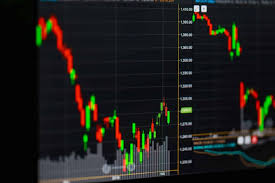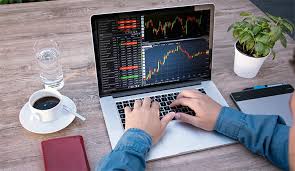
The Ultimate Guide to Forex Trading: Strategies, Tips, and Platforms
Forex trading, or foreign exchange trading, involves the buying and selling of currencies in the global market. It is one of the largest and most liquid markets in the world, dealing with a daily average of over $6 trillion. Trading in this domain begins with understanding essential concepts, mastering strategies, and selecting reliable platforms, such as forex trading site kuwait-tradingplatform.com, for executing trades efficiently.
Understanding Forex Trading
Before diving into the strategies and nuances of Forex trading, it is crucial to understand what the Forex market is. The Forex market operates through a network of banks, financial institutions, and individual traders, allowing them to exchange currencies at current or determined prices. Unlike other markets, the Forex market is decentralized and operates 24 hours a day, five days a week.
The Basics of Currency Pairs
In Forex trading, currencies are traded in pairs. A currency pair consists of a base currency and a quote currency. For instance, in the pair EUR/USD, EUR is the base currency, and USD is the quote currency. Traders speculate on the movement of these currencies; for example, if a trader believes that the Euro will strengthen against the Dollar, they would buy the EUR/USD pair.
Major, Minor, and Exotic Pairs
The Forex market categorizes currency pairs into three main types: major, minor, and exotic pairs. Major pairs include the most traded currencies, such as USD, EUR, and JPY. Minor pairs consist of currencies that are less frequently traded without the US dollar involved, like EUR/GBP. Exotic pairs involve a major currency combined with a currency from a developing economy, such as USD/TRY (Turkish Lira).
Navigating the Forex Market
To navigate the complex world of Forex trading effectively, traders need to analyze market trends and price movements. Two primary forms of analysis are fundamental and technical analysis. Fundamental analysis involves evaluating economic indicators, news releases, and geopolitical events that could affect currency values. Conversely, technical analysis focuses on historical price data and patterns to predict future price movements.
Fundamental Analysis
Fundamental analysis is centered around the economic health of a country or region. Traders study key indicators such as GDP growth, unemployment rates, interest rates, and inflation to gauge the currency’s potential performance. For instance, a country with rising GDP and low unemployment is likely to see its currency strengthen against others.
Technical Analysis
Technical analysts study price charts and patterns to forecast future movements. This involves using various indicators and tools like Moving Averages, Relative Strength Index (RSI), and Fibonacci retracement levels to identify potential entry and exit points. Successfully mastering technical analysis allows traders to make informed decisions regardless of market conditions.
Trading Strategies
Effective Forex trading requires a well-defined strategy. Here are some popular trading strategies:
Day Trading
Day trading involves executing multiple trades throughout the day to capitalize on short-term price movements. Day traders often close all their positions before the end of the trading day to avoid overnight risks.
Swing Trading

Swing trading focuses on holding positions for several days or weeks to benefit from expected price swings. Swing traders typically use both fundamental and technical analysis to make their trading decisions.
Scalping
Scalping is a high-frequency trading strategy that aims to profit from small price changes. Scalpers make dozens or even hundreds of trades each day, holding positions for a very short duration, from a few seconds to a few minutes.
Choosing the Right Forex Trading Platform
Selecting the right Forex trading platform is crucial for success. Factors to consider include:
- Reputation: Choose a platform with a solid reputation among traders.
- Regulation: Ensure the platform is regulated by recognized financial authorities.
- Trading Tools: Look for features like advanced charting tools, indicators, and automated trading options.
- Customer Support: Reliable customer support can make a difference when you encounter issues.
- Fees: Understand the commission, spread, and other fees associated with trading on the platform.
Risk Management in Forex Trading
Effective risk management is vital in Forex trading. The market can be highly volatile, and traders may face significant losses without a solid risk management strategy. Key components of risk management include:
Setting Stop-Loss Orders
A stop-loss order is a predefined price level at which a trader automatically exits a losing position. This helps in limiting potential losses and protecting profits.
Position Sizing
Determining how much of your capital to risk on a single trade is essential. Many traders recommend risking no more than 1-2% of your trading capital on any given trade.
Diversification
Similar to investing in stocks, diversification in Forex means spreading your investments across various currency pairs to mitigate risks. This way, a downturn in one currency may be offset by gains in another.
Emotional Discipline in Forex Trading
Maintaining emotional discipline is critical for success in Forex trading. Markets often behave irrationally, leading traders to make impulsive decisions based on their emotions instead of rationale. Practicing patience and sticking to your trading plan can help mitigate emotional decision-making. Some tips for maintaining emotional discipline include:
- Establish a trading routine and stick to it.
- Keep a trading journal to reflect on past trades and decisions.
- Avoid overtrading, which often occurs from the fear of missing out.
Conclusion
Forex trading can be both a rewarding and challenging endeavor. By understanding the fundamental concepts, developing effective strategies, selecting the right platforms, and practicing sound risk management, traders can navigate the Forex market with confidence. Whether you are just starting or looking to refine your skills, continuous learning and adaptation are vital in this ever-evolving landscape. To kickstart your trading journey, consider using reliable platforms such as kuwait-tradingplatform.com, which offers a user-friendly experience and valuable resources for traders of all levels.

